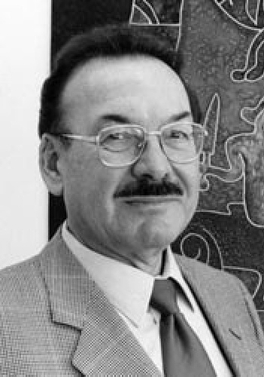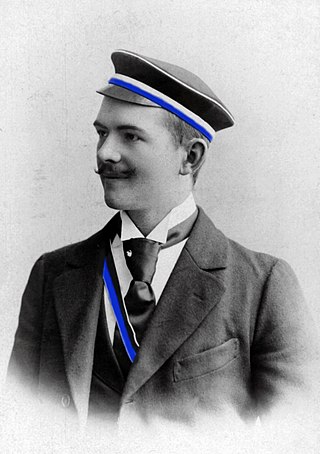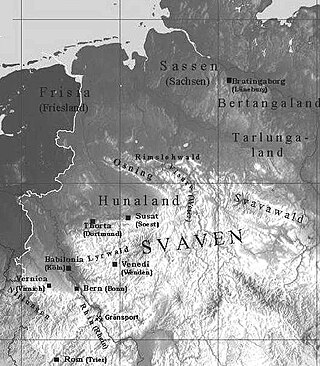Related Research Articles
German studies is the field of humanities that researches, documents and disseminates German language and literature in both its historic and present forms. Academic departments of German studies often include classes on German culture, German history, and German politics in addition to the language and literature component. Common German names for the field are Germanistik, Deutsche Philologie, and Deutsche Sprachwissenschaft und Literaturwissenschaft. In English, the terms Germanistics or Germanics are sometimes used, but the subject is more often referred to as German studies, German language and literature, or German philology.

Ernst Wiechert was a German teacher, poet and writer.
David E. Wellbery is an American professor of German Studies at the University of Chicago. As of 2022 he is the chair of the department of Germanic Studies and holds the LeRoy T. and Margaret Deffenbaugh Carlson University Professorship in the department. In 2020 he was elected to the American Philosophical Society.
Hartmut Erbse was a German classical philologist.
Hellmut Diwald was a German historian and Professor of Medieval and Modern History at the University of Erlangen-Nuremberg from 1965 to 1985.
Helmut de Boor was a German medievalist.

Edward Schröder was a Germanist and mediaevalist who was a professor at the University of Göttingen and published editions of numerous texts.
Wolfgang Kayser was a German Germanist and scholar of literature.
Notker Hammerstein is a German historian. His research interests are mainly in the field of University history and history of science as well as the history of the Holy Roman Empire of the German Nation.

Otto Gschwantler was an Austrian philologist who was head of the Institute for Germanic Studies at the University of Vienna. He specialized in the study of early Germanic literature.
Willy Krogmann was a German philologist who specialized in Germanic studies.
Georg Paul Rudolf Meissner or Meißner or Meiszner was a German philologist who specialized in Germanic studies.

Hans-Peter Naumann was a German philologist who specialized in Germanic studies.

Klaus von See was a German philologist who specialized in Germanic studies.

Wolfgang Golther was a German philologist who specialized in Germanic studies. A professor at the University of Rostock, Golther was a prominent authority on Medieval German literature and Germanic religion.
Friedrich Cornelius was a German historian who specialized in ancient history.

Eugen Fehrle was a German philologist who specialized in classical and Germanic philology.
Wilhelm Emil Mühlmann was a German ethnologist who served as Professor of Ethnology at the University of Mainz and Chair of Ethnology at the University of Heidelberg.

Julius Petersen was a German literary scholar and university professor, principally at the Friedrich Wilhelm University in Berlin. He did much to rediscover the works of Theodor Fontane for twentieth century readers. Petersen himself has been described as one of the most influential academics in the field of German studies during the interwar period, but after 1945 he disappeared from university reading lists. During the 1960s interest in his life and works resurfaced, though it has frequently been on account of evident contradictions in his attitude to National Socialism during the final decade of his own life that he has attracted the interest of more recent commentators.

Heinz Ritter-Schaumburg was a German scholar and writer, who developed a hypothesis about the origin of the legends about Dietrich von Bern and the Nibelungs. He postulated that Dietrich von Bern was a historic king ruling in Bonn in Germany, who was later confused with Theodoric the Great. Similarly he proposed that the legendary Etzel was a historic king residing in Soest, who was later confused with Attila the Hun. His hypothesis was either ignored or rejected by most scholars in the field, but gained a relatively large amount of attention in public since 1975.
References
- ↑ Ernst Klee: Das Personenlexikon zum Dritten Reich , 2nd edn. Fischer-Taschenbuch-Verlag, Frankfurt am Main 2007, ISBN 978-3-596-16048-8, p. 456.
- ↑ Robert Petsch, Nordische Dichtung. Olav Duun und seine Zeitgenossen. In: Germanisch-Romanische Monatsschrift. 25, 1937, pp. 242–256.